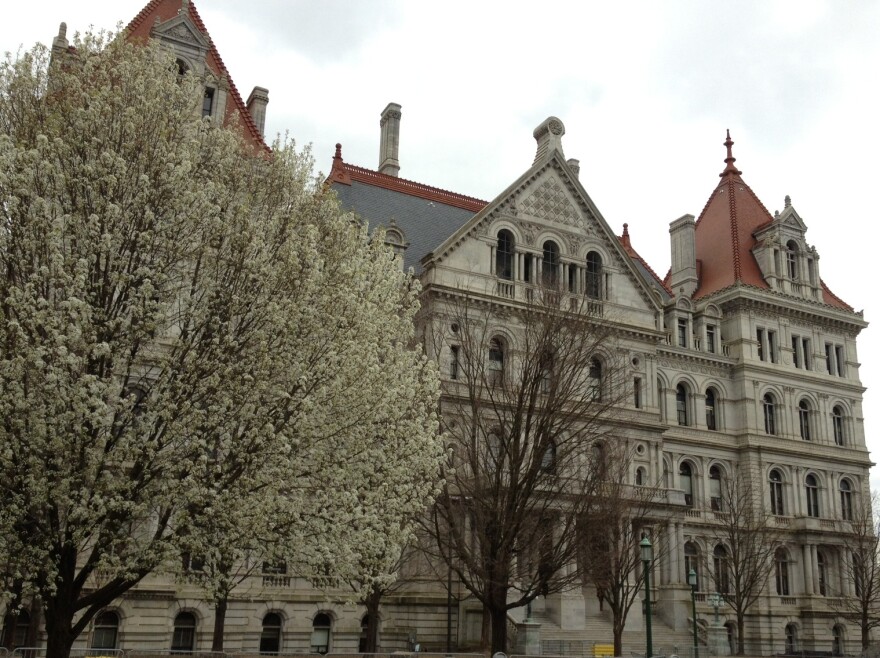Recent bribery scandals involving state legislators have fueled discussion on campaign finance reform at the Capitol, with several politicians and advocacy groups pressing for publicly financed campaigns. But a key faction in the legislature, Republicans in the State Senate, remains opposed.
Proponents of publicly financed political campaigns have been energized in recent weeks after a State Assemblyman and Senator were charged with bribery, and another Assemblyman admitted to wearing a wire to gather evidence against his colleagues. The Senator, former Majority Leader Malcolm Smith, was arraigned on the charges in federal court on Tuesday, and pleaded not guilty.
Ian Vandewalker is with NYU’s Brennan Center, one of many groups seeking to enact a statewide system similar to New York City’s six to one matching program. But he concedes that it won’t wipe out corruption.
“No system can completely stop individuals from behaving badly,” says Vandewalker , who says the influence of big money donors would be lessened.
“Comprehensive campaign finance reform can change the culture,” he said.
Assembly Democrats , who have backed public campaign financing for over a quarter century, released a plan to adopt New York City’s public campaign finance system to all state legislative races, and the statewide Comptroller’s race, beginning in 2014. Assembly Speaker Sheldon Silver says the chances of a version of the bill actually becoming law are increasing.
“I think the climate is ripe,” said Silver. “And it should certainly have a better reception now than ever before.”
Democrats in the State Senate also back public campaign financing. So does the Independent Democratic Conference, a breakaway group of Democrats who co lead the Senate along with Republican Senators. The IDC has the most stringent campaign finance reform plan of all factions in the legislature. Senator Malcolm Smith was a member of the breakaway Democrats until he was accused of the bribery scheme.
The Senate GOP, who jointly share power in the Senate with the Independent Democrats, is not on board with public financing though. Senate Republican Leader Dean Skelos calls it a waste of the taxpayer’s money.
“You’d be asking taxpayers to fund the robo calls that they hate,” said Skelos. “I don’t think that’s the way we should be moving forward.”
Skelos says there are better uses for the funds, like restoring cuts to disabled New Yorkers and spending more on schools.
“Those types of programs are more important than financing a candidate’s campaign who they might have no agreement with, philosophically,” Skelos said.
Skelos says a recent Quinnipiac poll showed that the majority of New Yorkers are also against the idea.
Michael Malbin, with the Campaign Finance Institute, which conducts research on public campaign financing, agrees that when voters are simply asked if they want their taxes to go to politicians, they are more likely to say no. But he says it’s more complicated than that.
“It’s true that if were to ask people in isolation, with no other facts attached to it ‘would you like give your money to politicians?’ they tend to say ‘no’,” Malbin said.
He says if the question is instead framed as “empowering small donors”, instead of the current system in which he say politicians are “beholden” to large donors, then, he says, the answer is more often yes.
“And the polls are quite clear nationally on that,” Malbin says.
Governor Cuomo has listed enacting public financing of campaigns as a top priority for this session. The governor has not released a bill. Cuomo usually prefers to negotiate deal first with legislative leaders instead. And the governor has not ruled out accepting a reform package that does not include public funding for campaigns.

